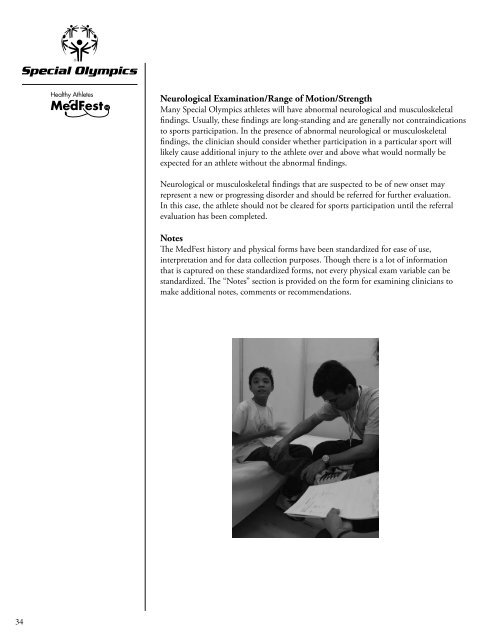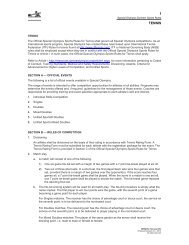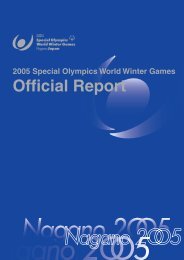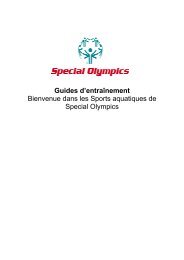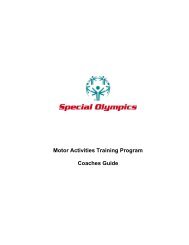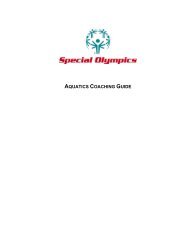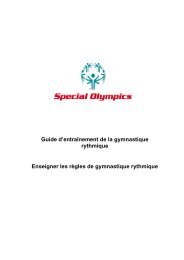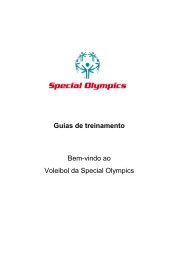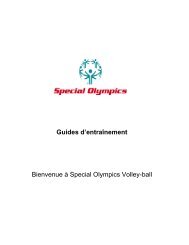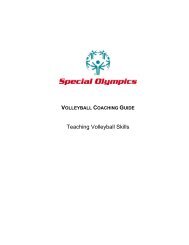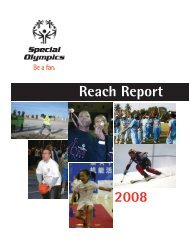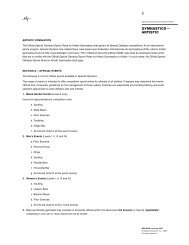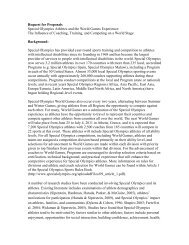MedFest Manual for Clinical Directors - Special Olympics
MedFest Manual for Clinical Directors - Special Olympics
MedFest Manual for Clinical Directors - Special Olympics
Create successful ePaper yourself
Turn your PDF publications into a flip-book with our unique Google optimized e-Paper software.
34<br />
Neurological Examination/Range of Motion/Strength<br />
Many <strong>Special</strong> <strong>Olympics</strong> athletes will have abnormal neurological and musculoskeletal<br />
findings. Usually, these findings are long-standing and are generally not contraindications<br />
to sports participation. In the presence of abnormal neurological or musculoskeletal<br />
findings, the clinician should consider whether participation in a particular sport will<br />
likely cause additional injury to the athlete over and above what would normally be<br />
expected <strong>for</strong> an athlete without the abnormal findings.<br />
Neurological or musculoskeletal findings that are suspected to be of new onset may<br />
represent a new or progressing disorder and should be referred <strong>for</strong> further evaluation.<br />
In this case, the athlete should not be cleared <strong>for</strong> sports participation until the referral<br />
evaluation has been completed.<br />
Notes<br />
The <strong>MedFest</strong> history and physical <strong>for</strong>ms have been standardized <strong>for</strong> ease of use,<br />
interpretation and <strong>for</strong> data collection purposes. Though there is a lot of in<strong>for</strong>mation<br />
that is captured on these standardized <strong>for</strong>ms, not every physical exam variable can be<br />
standardized. The “Notes” section is provided on the <strong>for</strong>m <strong>for</strong> examining clinicians to<br />
make additional notes, comments or recommendations.


